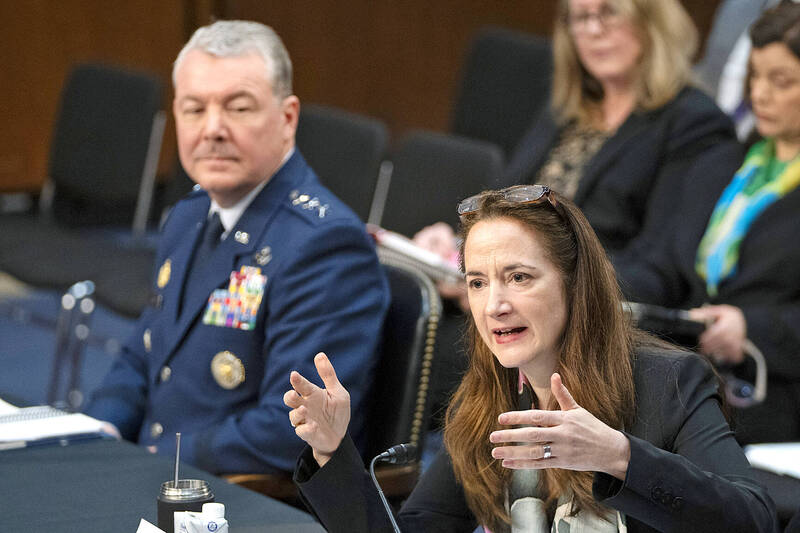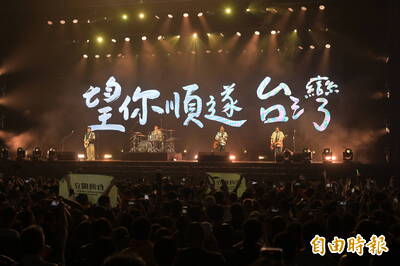《TAIPEI TIMES》 Russia could aid China in conflict: US

US Director of National Intelligence Avril Haines, right, speaks, as US Defense Intelligence Agency Director Lieutenant General Jeffrey Kruse looks on, during a US Senate Committee on Armed Services hearing in Washington on Thursday. Photo: AP
NO-LIMITS PARTNERSHIP: ‘The bottom line’ is that if the US were to have a conflict with China or Russia it would likely open up a second front with the other, a US senator said
By Lin Chia-yu and Jake Chung / Staff reporter, with staff writer and Bloomberg
Beijing and Moscow could cooperate in a conflict over Taiwan, the top US intelligence chief told the US Senate this week.
“We see China and Russia, for the first time, exercising together in relation to Taiwan and recognizing that this is a place where China definitely wants Russia to be working with them, and we see no reason why they wouldn’t,” US Director of National Intelligence Avril Haines told a US Senate Committee on Armed Services hearing on Thursday.
US Senator Mike Rounds asked Haines about such a potential scenario. He also asked US Defense Intelligence Agency Director Lieutenant General Jeffrey Kruse about the Pentagon’s planning for such a possibility.
The US Department of Defense has “become even more concerned about our joint force requirements in an environment where” Russia and China “would certainly be cooperative, and we need to take that into account,” Kruse said.
“Even if Russia’s and China’s military forces are not interoperable, they would certainly be cooperative, and we would need to take that into account for structure and planning,” he said.
Rounds said that “the bottom line is that, basically, if we were to have a conflict with one, chances are that we would have a second front,” affecting planning, equipment and personnel needs.
“Certainly it’s a possibility,” Haines said. “The question of just how likely it is, I think differs depending on the scenario.”
Haines said that increasing cooperation and the “no-limits partnership” between China and Russia across every sector of society, from politics and the economy, to military and technology, “is something that our understanding is prompting new planning across the government in many respects.”
“We expect the PLA [Chinese People’s Liberation Army] will field more advanced platforms, deploy new technologies, grow more competent in joint operations, and seek to strengthen their nuclear forces and cybercapabilities, while also seeking to divide us from our allies in Europe and in the Indo-Pacific,” she said.
Chinese President Xi Jinping (習近平) “and his senior leadership expect some degree of future instability in the bilateral relationship with the United States, and they continue to believe that the United States is committed to containing China’s rise and undermining the party’s rule,” she said.
Haines said that to achieve such ambitions, “Beijing will continue to use its military forces to intimidate its neighbors and to shape the region’s actions in accordance with the PRC [People’s Republic of China] priorities, most obviously, in relation to Taiwan, as the PRC presses for unification.”
However, Beijing also perceives value in projecting stability in its relationship with the US, “particularly from a domestic economic perspective, which is their main priority,” she said.
新聞來源:TAIPEI TIMES



















